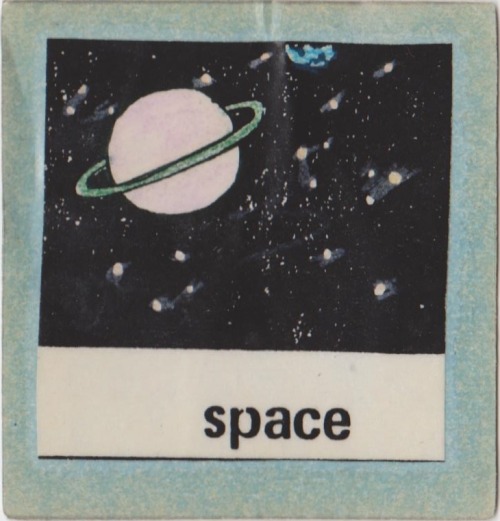Seeing El Niño…From Space
Seeing El Niño…From Space
First, What is El Niño?
This irregularly occurring weather phenomenon is created through an abnormality in wind and ocean circulation. When it originates in the equatorial Pacific Ocean. El Niño has wide-reaching effects. In a global context, it affects rainfall, ocean productivity, atmospheric gases and winds across continents. At a local level, it influences water supplies, fishing industries and food sources.
What About This Year’s El Niño
This winter, weather patterns may be fairly different than what is typical — all because of unusually warm ocean water in the east equatorial Pacific, aka El Niño. California is expected to get more rain while Australia is expected to get less. Since this El Niño began last summer, the Pacific Ocean has already experienced an increase in tropical storms and a decrease in phytoplankton.
How Do We See El Niño?
Here are some of El Niño’s key impacts and how we study them from space:
Rainfall:

El Niño often spurs a change in rainfall patterns that can lead to major flooding, landslides and droughts across the globe.
How We Study It: Our Global Precipitation Measurement mission (GPM), tracks precipitation worldwide and creates global precipitation maps updated every half-hour using data from a host of satellites. Scientists can then use the data to study changes in rain and snow patterns. This gives us a better understanding of Earth’s climate and weather systems.
Hurricanes:

El Niño also influences the formation of tropical storms. El Niño events are associated with fewer hurricanes in the Atlantic, but more hurricanes and typhoons in the Pacific.
How We Study It: We have a suite of instruments in space that can study various aspects of storms, such as rainfall activity, cloud heights, surface wind speed and ocean heat.
Ocean Ecology:

While El Niño affects land, it also impacts the marine food web, which can be seen in the color of the ocean. The hue of the water is influenced by the presence of tiny plants, sediments and colored dissolved organic material. During El Niño conditions, upwelling is suppressed and the deep, nutrient-rich waters aren’t able to reach the surface, causing less phytoplankton productivity. With less food, the fish population declines, severely affecting fishing industries.
How We Study It: Our satellites measure the color of the ocean to derive surface chlorophyll, a pigment in phytoplankton, and observe lower total chlorophyll amounts during El Niño events in the equatorial Pacific Ocean.
Ozone:

El Niño also influences ozone — a compound that plays an important role in the Earth system and human health. When El Niño occurs, there is a substantial change in the major east-west tropical circulation, causing a significant redistribution of atmospheric gases like ozone.
How We Study It: Our Aura satellite is used to measure ozone concentrations in the upper layer of the atmosphere. With more than a decade of Aura data, researchers are able to separate the response of ozone concentrations to an El Niño from its response to change sin human activity, such as manmade fires.
Fires:

El Niño conditions shift patters of rainfall and fire across the tropics. During El Niño years, the number and intensity of fires increases, especially under drought conditions in regions accustomed to wet weather. These fires not only damage lands, but also emit greenhouse gases that trap heat in the atmosphere and contribute to global warming.
How We Study It: Our MODIS instruments on Aqua and Terra satellites provide a global picture of fire activity. MODIS was specifically designed to observe fires, allowing scientists to discern flaming from smoldering burns.
Make sure to follow us on Tumblr for your regular dose of space: http://nasa.tumblr.com
More Posts from Nmartinez930301-blog and Others
💜


All you need is love, love. Love is all you need.
The Beatles, All You Need Is Love (via music-and-quotes)

👌

How rare and beautiful it truly is that we exist.
Sleeping at Last, “Saturn” (via wnq-music)


i should really stop developing crushes on people i can’t touch


-
 reddog1984 liked this · 7 years ago
reddog1984 liked this · 7 years ago -
 look-see-sciency reblogged this · 7 years ago
look-see-sciency reblogged this · 7 years ago -
 gary360808 liked this · 7 years ago
gary360808 liked this · 7 years ago -
 usafphantom2 reblogged this · 7 years ago
usafphantom2 reblogged this · 7 years ago -
 s6t2e5f-blog1 reblogged this · 7 years ago
s6t2e5f-blog1 reblogged this · 7 years ago -
 yelpers-blog1 liked this · 7 years ago
yelpers-blog1 liked this · 7 years ago -
 environmentalblogs-blog liked this · 8 years ago
environmentalblogs-blog liked this · 8 years ago -
 biggerb0at reblogged this · 8 years ago
biggerb0at reblogged this · 8 years ago -
 kimiveronica reblogged this · 9 years ago
kimiveronica reblogged this · 9 years ago -
 hotvalencia liked this · 9 years ago
hotvalencia liked this · 9 years ago -
 pourlamer liked this · 9 years ago
pourlamer liked this · 9 years ago -
 usuallysecretcollectionme-blog liked this · 9 years ago
usuallysecretcollectionme-blog liked this · 9 years ago -
 niacanialla reblogged this · 9 years ago
niacanialla reblogged this · 9 years ago -
 thetreemother reblogged this · 9 years ago
thetreemother reblogged this · 9 years ago -
 pixie-dust-anon-blog reblogged this · 9 years ago
pixie-dust-anon-blog reblogged this · 9 years ago -
 zorped liked this · 9 years ago
zorped liked this · 9 years ago -
 calgal48 reblogged this · 9 years ago
calgal48 reblogged this · 9 years ago -
 maneth985 reblogged this · 9 years ago
maneth985 reblogged this · 9 years ago -
 gitsie007 reblogged this · 9 years ago
gitsie007 reblogged this · 9 years ago -
 gitsie007 liked this · 9 years ago
gitsie007 liked this · 9 years ago -
 thetreemother reblogged this · 9 years ago
thetreemother reblogged this · 9 years ago -
 acegeckers3d reblogged this · 9 years ago
acegeckers3d reblogged this · 9 years ago -
 deltaperseii liked this · 9 years ago
deltaperseii liked this · 9 years ago -
 yandereberu liked this · 9 years ago
yandereberu liked this · 9 years ago -
 thisisacatperson reblogged this · 9 years ago
thisisacatperson reblogged this · 9 years ago -
 acegeckers3d liked this · 9 years ago
acegeckers3d liked this · 9 years ago -
 geeksandathletes reblogged this · 9 years ago
geeksandathletes reblogged this · 9 years ago -
 bccsac-blog reblogged this · 9 years ago
bccsac-blog reblogged this · 9 years ago -
 sciencekush reblogged this · 9 years ago
sciencekush reblogged this · 9 years ago -
 skater314159 reblogged this · 9 years ago
skater314159 reblogged this · 9 years ago -
 solipsismnow liked this · 9 years ago
solipsismnow liked this · 9 years ago -
 climate-changing reblogged this · 9 years ago
climate-changing reblogged this · 9 years ago -
 climate-changing liked this · 9 years ago
climate-changing liked this · 9 years ago
You are the person I'll never stop looking for in a crowded place.
228 posts